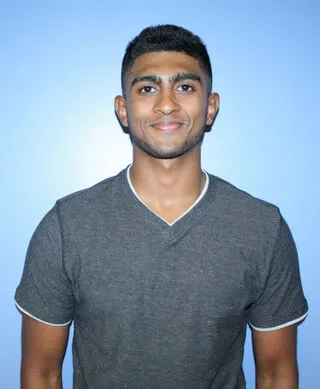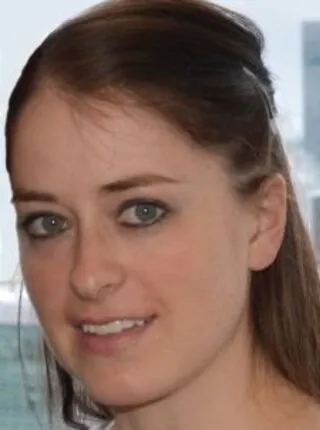Lab Members
Victor Alcalde
Research Specialist
victor.alcalde@pennmedicine.upenn.edu
I joined the Wherry Lab in February of 2022 as a research specialist. I provide research assistance in developing projects related to reinvigoration of T cell exhaustion in chronic infection, with a particular focus on PD-1 pathway. I also assist our lab manager with routine lab tasks to ensure the laboratory operates smoothly.
Mohammed-Alkhatim A. Ali, MS, BVSc
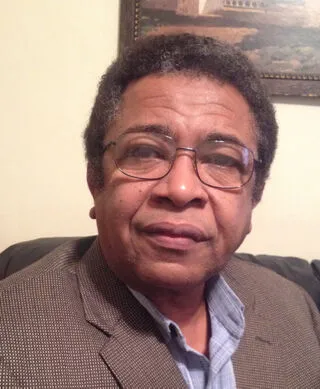
Research Specialist
mohammal@pennmedicine.upenn.edu
Among many other molecules, CD8 T cells responding to viral infection upregulate the C-C chemokines RANTES and Mip-1α. It is not clear what functional capacities do these chemotactic cytokines confer on CD8 T cells. Using the mouse influenza infection model and adoptive transfer of CD8s expressing or lacking RANTES and Mip-1a we are attempting to elucidate the possible role/roles they play in CD8 T cell function.. Our preliminary data suggest that CD8 T cells are probably using these molecules to exert some command over the accumulation of a population/populations of myeloid cells, that appear to be involved in the regulatory circuits of the lung during CD8-driven immune response to influenza infection.
Victoria Fang
Fellow
victoria.fang@pennmedicine.upenn.edu
Follow Victoria on Twitter!
Hidradenitis Suppurativa is an inflammatory skin disease that causes non-healing painful nodules, abscesses, and draining sinus tracts. I am interested in understanding the immunologic mechanisms of this disease using highly multiplexed imaging and sequencing platforms with the goal of improving treatment options for patients.
Benjamin Fensterheim MD PhD
benjamin.fensterheim@pennmedicine.upenn.edu
Ben on PubMed
As a neonatologist, I care deeply about infants born prematurely. Many of the diseases that impact premature infants are driven by maladaptation of the immune system to an unexpected and medicalized post-natal life. I am working to understand these adaptations as they occur over time and with diseases of prematurity, such as bronchopulmonary dysplasia (BPD). As part of this effort, I am establishing a biobank of premature infant peripheral blood that I am using for high-dimensional immune profiling, including cellular and proteomic analyses.
Audrey Gang
undergraduate student
agang@sas.upenn.edu
I am an undergraduate student majoring in biology at the University of Pennsylvania with interests in chronic inflammation and cancer immunity. Prior to joining the Wherry Lab, I studied the interactions between adult stem cells and the immune system during wound healing and in the tumor microenvironment. In the future, I hope to practice medicine while pursuing immunological and cancer research as an MD/PhD to develop novel immunotherapies for tissue regeneration and cancers. Outside the lab, I enjoy playing the piano, drawing, and trying new restaurants.
Josephine Giles
Senior Research Investigator
jogiles@pennmedicine.upenn.edu
My overall research goal is to elucidate the epigenetic and transcriptional networks that control CD8 T cell differentiation, including T cell exhaustion in cancer and chronic infection. These studies combine mouse models of T cell differentiation and human immunology with next-generation sequencing, single cell genomics, high dimensional cytometry, CRISPR technologies, and computational analysis.I graduated from Mount Holyoke College summa cum laude in 2007, then earned a PhD from Yale University. My graduate work in the laboratory of Mark J. Shlomchik investigated T cell - B cell interaction in systemic autoimmune disease and resulted in a novel method for identifying and studying autoreactive T cells. As a postdoctoral fellow in E. John Wherry’s lab, I was awarded a Cancer Research Institute-Mark Foundation Fellow and studied the epigenetic state of CD8 T cells after immune checkpoint blockade in melanoma patients.
Christopher Holliday
Lab Manager
Christopher.Holliday@Pennmedicine.upenn.edu
Originally from Illinois, Chris Holliday joined the Jordan lab in 2022 and the Wherry lab in 2025.
Hua Huang
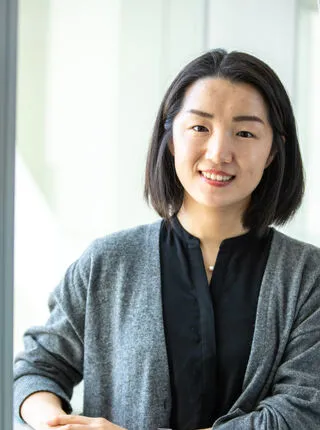
Bioinformatician
hua.huang@pennmedicine.upenn.edu
I joined the Wherry and Berger labs in Feb 2019. My role is to provide bioinformatics and computational supports to the team and collaborators, including: Developing, implementing, and maintaining pipelines for processing NGS data in high-performance computing environment; Applying general statistical, machine learning and other advanced methods and algorithms for analyzing large scale biomedical data.
Yasmin Kamal
Post-doc
Yasmin.Kamal@Pennmedicine.upenn.edu
Yasmin Kamal received her MD/PhD from Dartmouth Medical School in 2022 and completed her internal medicine residency at Brigham and Women’s Hospital (BWH) in Boston, Massachusetts in 2024. She is currently a gastroenterology/hepatology fellow at the Hospital of the University of Pennsylvania in the basic science track. Yasmin is working to examine the role of genomic integrity on T cell dynamics and its effects on the development of pre-cancerous and cancerous lesions in DNA repair syndromes, specifically in patients with Lynch Syndrome and BRCA1/2 carriers. Yasmin hopes to integrate her scientific interests in immunology and genomics with her clinical interests in hereditary GI cancer genetics and onco-gastroenterology. Outside of the lab and clinic, Yasmin enjoys spending time with her family, cooking, and hiking.
Max Klapholz
graduate student
maxklap@pennmedicine.upenn.edu
Max on PubMed
In 2020, I joined the labs of E. John Wherry, PhD and Andy Minn, MD PhD as a graduate student in the Cell and Molecular Biology group (CAMB). My research primarily focuses on the contribution of pattern recognition receptor (PRR) signaling to CD8 T cell phenotypes during viral infection and cancers.
Jon Kotzin
Rheumatology Fellow
jkotzin@pennmedicine.upenn.edu
Pubmed
Certain autoimmune and autoinflammatory diseases develop in older age. There is a growing appreciation that we all accumulate somatic mutations in our hematopoietic cells over time, and that some of these mutations can alter immune function. My goal is to identify driver somatic mutations in inflammatory diseases, and to understand how these mutations lead to immune dysregulation.
Matthew Lee
graduate student
matthew.lee1@pennmedicine.upenn.edu
scholar.google.com
I am a graduate student in the Genomics and Computational Biology (GCB) Graduate Group. Co-advised by Dr. John Wherry and Dr. Dokyoon Kim, I am interested in the application and development of deep learning for the analysis and integration of various immunologic data including imaging and 'omics.
Stefan Lundh
Graduate Student
slundh@pennmedicine.upenn.edu
Stefan on PubMed
I am a graduate student in the Immunology Graduate Group (IGG) being co-mentored by Martha Jordan and John Wherry. I have a strong interest in T cell exhaustion and the epigenetic drivers of it. Specifically, I'm interested in understanding the molecular role TOX plays in CD4+ T cell function, differentiation, and ultimately how it impacts immune responses to chronic infection and cancer.
Sasikanth Manne

Research Specialist
sasim@mail.med.upenn.edu
Bioinformatician
I joined Wherry Lab in 2015, my primary role has been to analyze, integrate and deduce mechanistic insights from various epigenetic & transcriptional profiling data of immune cell subsets.
I have worked on adapting Next Generation Sequencing analysis approaches to create flexible, modular workflows by using/integrating various software packages and algorithms.
Also developed and maintained web tools to host, visualize and analyze various sequencing data generated in the lab and from external sources.
Divij Mathew, PhD
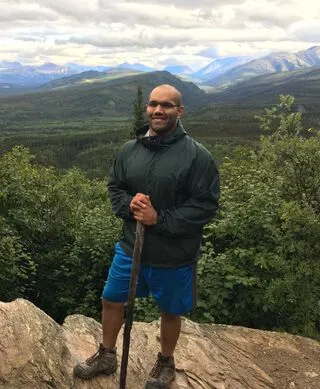
Postdoc
Divij.Mathew@pennmedicine.upenn.edu
Follow Divij on Twitter
I study various determinants in human blood or tissue that can dictate the response to immunotherapies in human cancers.
Caroline Myers
Post-doc
caroline.myers@pennmedicine.upenn.edu
Cutaneous T-cell Lymphoma is an incurable cancer of skin-homing T cells. My research seeks to understand what drives this cancer and the clinical differences we see in patient presentation, prognosis, and response to therapy.
Shin Foong Ngiow
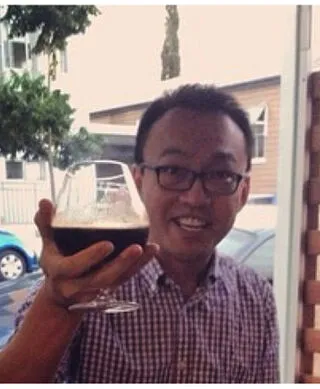
Post-doc
sngiow@pennmedicine.upenn.edu
Shin Foong obtained his PhD from the University of Melbourne in 2013 where he studied a number of immune suppressive pathways in cancer. He then joined the Wherry lab in Spring 2016, and has been working on projects to gain better understanding of the interactions between multiple immune receptors in regulating T cell exhaustion.
Mark Painter
Post-doc
mark.painter@pennmedicine.upenn.edu
Follow Mark on Twitter
I joined the Wherry lab as a postdoc in 2021 to study human immune responses following SARS-CoV-2 vaccination and infection. My work leverages sensitive detection of antigen-specific T and B cells to study human immunology in several contexts, including viral infection and vaccination, Long COVID, and the impact of viral infection on autoimmunity and cancer.
Simone Park
Post-doc
simone.park@pennmedicine.upenn.edu
Follow Simone on Twitter
I joined the Wherry lab as a post-doc in 2021. I am investigating factors controlling exhausted and memory CD8+ T cell differentiation in non-lymphoid and peripheral tissues during chronic infection and cancer, with the goal of leveraging this information to design novel immunotherapies.
Rishi Raghav Suresh
Undergraduate Researcher
rsuresh@seas.upenn.edu
I am an undergraduate student (class of 2027) studying Bioengineering at the University of Pennsylvania. I have interests in immunotherapies, nanoparticle drug delivery systems, and autoimmune diseases. I am working on projects characterizing Tertiary Lymphoid Structures in Hidradenitis Suppurativa and I am leading a collaboration between the Wherry and Mitchell labs to engineer tolerogenic Follicular Dendritic Cells for applications in autoimmune diseases. I have ambitions to become a physician-scientist to pursue a career focused on developing immunotherapies for applications in autoimmune disorders and immunophenotyping immune responses to predict and enhance treatment results.
Melody Tan
PhD Student
Melody.Tan@Pennmedicine.upenn.edu
I am a PhD student in the Cell and Molecular Biology Graduate Group (Gene Therapy and Vaccines Program), and I joined the Ruella and Wherry Labs in 2023. My research focuses on leveraging the epigenetics of T cell exhaustion for improving T cell immunotherapies. When not in lab, I enjoy swing dancing, volleyball, and trying new restaurants.
Joe Tandurella
Graduate Student
Joe.Tandurella@Pennmedicine.upenn.edu
Google Scholar profile
Joe is a graduate student in the Cancer Biology program at Penn and am co-mentored by Caroline Bartman. My focus is understanding the role of metabolism during CD8+ T cell differentiation during viral infection and cancer.
Leo Torres
graduate student
leonel.torres@pennmedicine.upenn.edu
I’m a graduate student in the Immunology Program and joined the Wherry and Gill labs in the summer of 2022. My focus is understanding the epigenetic regulation of human T cell exhaustion. I also wish to gain further knowledge of higher-order 3D structures of the folded genome during the development of T cell exhaustion.
Van Truong
Graduate Student
heyvan@pennmedicine.upenn.edu
Follow Van on Twitter
I am a graduate student in the Genomics and Computational Biology (GCB) Graduate Group. Under the co-mentorship of Dr. John Wherry and Dr. Marylyn Ritchie, I am developing computational immunology methods for single-cell data. Outside of science, I play Ultimate Frisbee, love cooking, and can usually be found exploring the outdoors.
Ping Wang
Post-doc
Ping.Wang1@Pennmedicine.upenn.edu
I’m interested in the dynamical regulation of T cell exhaustion in cancer progression, especially the epigenetic role in this process. My goal is to apply single-cell omics and various CRISPR based tools to primary and engineered human immune cells to identify the functional elements and the key regulatory factors in effector and exhausted T cells.
Past Lab Members
Mohamed Abdel-Hakeem
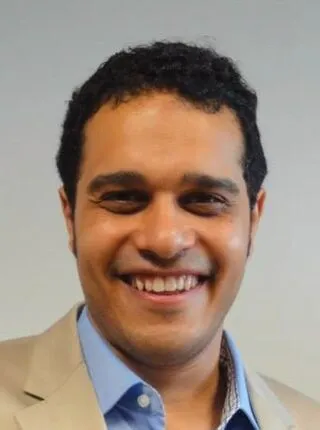
Post-doc
mohaab@pennmedicine.upenn.edu
Checkpoint inhibitors that target the PD-1 inhibitory pathway reverse T cell exhaustion and reinvigorate anti-cancer T cells to become functional again, thus enabling the patient’s immune system to mount effective anti-tumor responses. However, sometimes anti-cancer T cells cannot be reinvigorated by checkpoint blockade alone. My project aims to identify other mechanisms that could rescue anti-cancer T cell responses and help them to recover and overcome exhaustion. My work will potentially identify novel approaches for new immunotherapies that can boost the ability of the immune system to fight highly resistant cancers.
Cécile Alanio
Post-doc
cecile.alanio@inserm.fr
Cécile is a former PostDoc in the Wherry lab. During her postdoc, she was awarded a Parker Bridge Fellowship and worked on samples from COVID patients, as well as PDAC, glioblastoma, lymphoma, and CART cancer patients with a translational approach. Back in France, after working four years at the Institut Curie, she now joined the University Paris Cité in Paris, France, where she helps coordinating the immunomonitoring of cancer patients. She is also an Adjunct Assistant Professor in the Department of Neurosurgery at UPenn. She studies T cell biology in human health and disease. Her focus is on solid (brain) tumors and CAR T cells profiling. Cécile is an active collaborator of the Wherrylab, the University of Pennsylvania, and the Parker Institute for Cancer Immunotherapy (PICI).
Sokratis Apostolidis
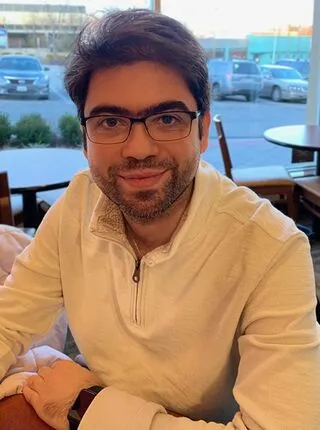
Rheumatology Fellow
Sokratis.Apostolidis@pennmedicine.upenn.edu
Follow Sokratis on Twitter
Immune checkpoint blockade has shown promising results in cancer therapeutics but has also been associated with a variety of immune related adverse events and iatrogenic autoimmunity. My goal is to study the immune dysregulation that follows checkpoint inhibition and eventually results in loss of self-tolerance using both human and murine samples.
Amy Baxter
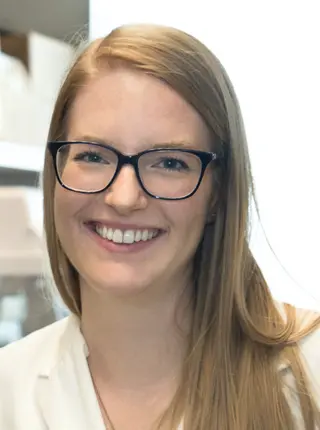
Postdoc
amy.baxter@pennmedicine.upenn.edu
The development of immunotherapies, such as PD-1 blockade, have revolutionized cancer treatment. These therapies work by reinvigorating exhausted T cells, but only a minority of patients experience a clinical benefit. I joined the Wherry and Jordan labs in March 2018 to study the epigenetic factors that mediate development of exhausted T cells, using cutting edge CRISPR, RNA-seq and ATAC-seq approaches. My goal is to understand how these epigenetic factors might be manipulated to promote better clinical responses to immunotherapy.
Jean-Christophe Beltra
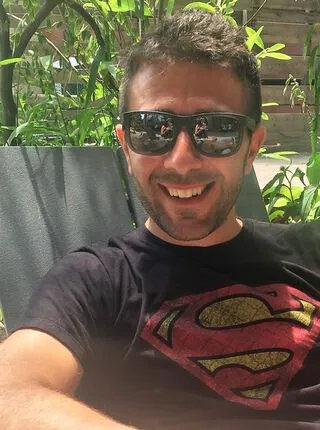
Post-doc
jcbeltra@pennmedicine.upenn.edu
It is now well-established that exhausted CD8 T cells do not behave as a single homogenous population. During a chronic viral infection, a unique progenitor/progeny dynamic is rapidly set up to ensure continuous control of viremia. My current project aims to elucidate critical mechanisms involved in the development and lineage commitment of different subsets of exhausted CD8 T cells. My second interest is to identify relevant immunotherapeutic agents capable of synergizing with immune checkpoint blockade to further improve and prolonged the beneficial effect of such treatment in patients with cancer.
Jonathan Belman, MD, PhD
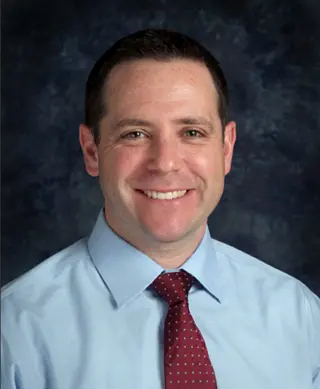
Fellow
Jonathan.Belman@pennmedicine.upenn.edu
I am interested in combining big data analytics, deep phenotyping of clinical cohorts, and biological experiments to better understand drivers of disease, with the goal of translating new insights into improved therapeutic and diagnostic strategies. Currently, I am focused on 1) the role of interferon pathway signatures in immuno-oncology and viral infection and 2) technology development to enhance our analysis of biological context.
Srijay Chenna
Visiting student
srijayc@sas.upenn.edu
With prior experience in pharmacology, I’m a visiting student looking to understand gene editing principles and their possible applications to new therapeutics.
Bria Fulmer
Research Specialist
Bria.fulmer@pennmedicine.upenn.edu
I joined the Wherry Lab in September of 2021. I am currently investigating the role of PD-1 signaling in human T:B interactions using high-dimensional flow cytometry and single-cell sequencing approaches.
Rishi Goel
Medical Student
rishi.goel@pennmedicine.upenn.edu
Follow Rishi on Twitter
Rishi is a medical student at the University of Pennsylvania. In the lab, he studies vaccine immunology and is currently investigating antibody and memory B cell responses to SARS-CoV-2 vaccines.
Allison Greenplate

Post-doc
Allison.Greenplate@pennmedicine.upenn.edu
I obtained my PhD from Vanderbilt University in 2018 where I studied systems immune monitoring in melanoma patients undergoing therapy. I joined the Wherry lab in early 2019 where my project focuses on dissecting the role of non-coding regions of the genome to better understand and control the exhaustion fate commitment in T cells.
Jane Yinghui Huang
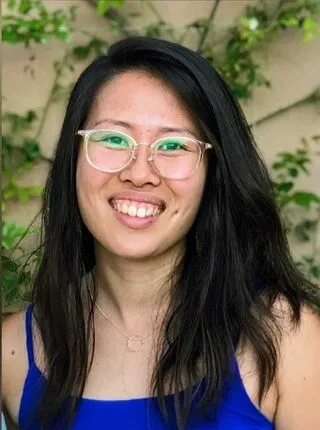
Grad Student
yjhuang@pennmedicine.upenn.edu
I'm a second-year student in the cancer biology PhD program. I'm interested in the epigenetic determinants underlying fate commitment to T cell exhaustion. Ultimately, I hope to leverage this understanding to improve CD8 functionality in cancer and chronic infections.
Ajinkya Pattekar, MD
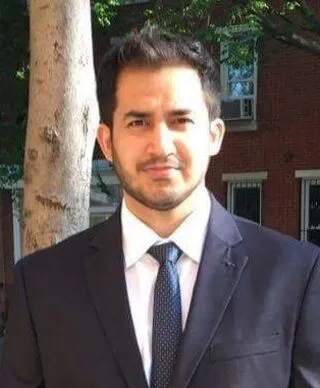
Research Specialist
ajinkyap@mail.med.upenn.edu
I am trying to define the T cell epitopes for Human Norovirus by conducting peptide library screens on peripheral blood and intestinal samples. My other project involves deep immune phenotyping of T cell subsets from intestinal mucosa of IBD patients.
David Reeg
Medical Student
david.reeg@pennmedicine.upenn.edu
David Reeg Website
David is a medical student at the University of Freiburg (Germany) and joined the Wherry Lab in October 2023. His main focus lies on the human adaptive immune response. Currently, he is studying antigen-specific CD4+ T cells in the context of SARS-CoV-2 vaccination and Long COVID.
Jennifer Wu
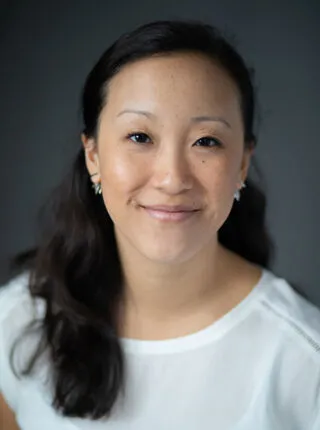
Graduate Student
jennwu@mail.med.upenn.edu
Follow Jen on Twitter
I am a graduate student in the Immunology Graduate Group (IGG). For my thesis project, I’ve developed an in vitro model of CD8 T cell exhaustion and I am currently applying this model to uncovering novel transcriptional networks that control T cell exhaustion and fate differentiation. I was recently named a Parker Institute for Cancer Immunotherapy Scholar.
Shawn Kothari
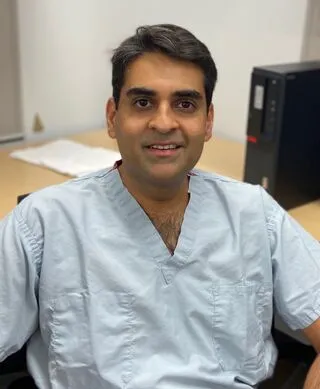
Medical Oncology Fellow
Shawn.Kothari@pennmedicine.upenn.edu
I am an oncology fellow at the University of Pennsylvania with clinical interests in neuro-oncology. I am pursuing a post-doc within the Wherry Lab to learn a variety of molecular and immune-profiling techniques. I am interested in applying these technologies to study the biology of primary brain tumors and mechanisms of response to immunotherapy in the context of early phase clinical trials. I hope our findings will help potentiate new therapeutic insights for these patients.
Omar Khan

Graduate Student
khanomar@mail.med.upenn.edu
I am interested in the epigenetic mechanisms governing T cell fate decisions and responses to viral infection. To that end, my work focuses on understanding the role of chromatin-modulating proteins in regulating immune function by leveraging high through-put techniques, engineered microfluidic devices, and mouse models.
Yuki Muroyama, MD, PhD

Postdoc
yukimuro@pennmedicine.upenn.edu
Yuki has been dissecting the unique interaction between the immune system and DNA damage and repair response (DDR) to understand how that interaction impacts the immune cell biology and patient therapeutic response, continuing from her PhD work in the radio-immuno-oncology field. Yuki developed the high-dimensional DDR-Immune profiling platform that enables simultaneous analysis of DDR and T cell biology in single cell resolution in human T cells. Yuki applied that DDR-Immune platform and found unique patterns of DDR in human T cell subsets, and also found DDR-Immune signatures that can distinguish clinical response to immunotherapy. She has also been working on studies and immune profiling of cancers, radiation therapies, vaccination, Lynch syndrome and BRCA-mutated patients, as well as working on mouse viral infection and tumor models for memory/exhausted T cell biology.
Oliva Kuthuru

Clinical Research Coordinator
oliva.kuthuru@pennmedicine.upenn.edu
Oliva A. Kuthuru, MS
Manager of Clinical Research Operations
Oliva is the Manager of Clinical Research Operations at the Wherry Lab and Immune Health at the University of Pennsylvania, where she oversees daily operations in clinical research for the institute. She leads the development of the Clinical Research Pillar at Immune Health Institute, as well as multidisciplinary clinical teams composed of physician scientists, research personnel, industry partners, and specialty clinics from study start-up to study close-out. She directly manages clinical research staff, including clinical research coordinators (CRCs) and mobile phlebotomists.
She also manages all aspects of the Institute’s clinical research studies, from protocol writing and study start-up to regulatory and compliance to data capture and study close-out. She coordinates the lab’s clinical research studies, which primarily investigate the immune response to the flu vaccines in the presence of immunotherapies, as well as the COVID-19 vaccine and COVID-19 endemicity studies in immunocompromised and healthy subjects.
She is developing, implementing, and overseeing new clinical research systems (i.e., daily recruitment tracker, iConnect recruitment portal, REDCap, mobile phlebotomy service team, Lab Vantage Clinical Specimen Tracker and Immune Health Visit Scheduler) for research operations to increase subject enrollment and retention across all active clinical research studies and projects. She spearheads the development of a novel mobile phlebotomy application (SpeciTracker) that tracks the research sample from subject’s home to completion of processing with the processing unit. The SpeciTracker application is currently active and utilized by all CRCs and mobile phlebotomists across all research studies within the Institute.
She is experienced in conducting FDA-regulated, NIH-funded, industry-sponsored, and investigator-initiated clinical research studies over the past four years and has a strong foundation and skillset to lead research studies and teams from study start-up to study close-out. She adheres GCP, HIPAA, FDA, and IRB regulations, and is extremely proficient in regulatory submissions and protocol writing. She manages and maintains all regulatory submissions for the Lab and Institute.
Her contributions to research design and outcomes at the Institute, especially during the pandemic, resulted in the team’s success of numerous publications and evidence-backed knowledge that positively impacts our community and population.
Prior to working at Penn, she gained experience working in a fast-paced clinical research setting and coordinating sponsored trials for the Department of Neurology at Thomas Jefferson University.
John Attanasio

Research Tech
johnatt@mail.med.upenn.edu
I test antibodies and small molecule inhibitors in a chronic infection model for two different, but related purposes. First, investigating possible synergy between the PD1/PDL1 axis and other inhibitory or costimulatory pathways. Second, improving functionality of previously exhausted CD8 T-Cells.
Bertram Bengsch

Post-doc
bbengsch@mail.med.upenn.edu
I’m interested in the regulation of immune responses in infection, autoimmunity and cancer with a focus on the mechanisms driving T cell exhaustion. My research uses systems immunology approaches with a particular emphasis on mass cytometry for the comprehensive profiling and algorithmic data mining of immune cells in human disease. Further, I’m investigating the role of the regulation of immunometabolism in T cell exhaustion using the LCMV model system.
Derek Oldridge, MD PhD
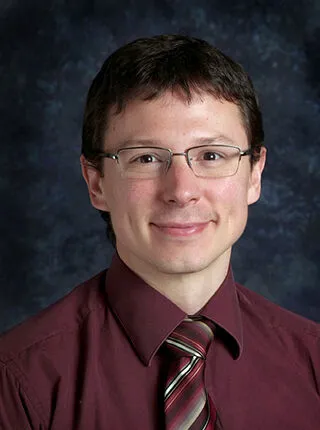
Clinical Pathology and Immunogenetics Fellow
Derek.Oldridge@pennmedicine.upenn.edu
Follow Derek on Twitter
I have worked in cancer genomics for over a decade, integrating experimental and computational approaches to uncover the basis of tumorogenesis, tumor progression, and relapse. I joined the Wherry lab in 2019 where I am validating in situ multiplexed imaging methods to investigate immune response and immunopathology in clinical tissues. As part of the Human Tumor Atlas Network (HTAN), I am integrating imaging data with single-cell RNA-seq and ATAC-seq to longitudinally and comprehensively profile the tumor immune microenvironment of high-grade gliomas, as a basis for rational immunotherapy design in the diagnostic and relapsed settings.
Robert Zorc
Undergraduate Student
rzorc@sas.upenn.edu
I am an undergraduate studying Biochemistry at the University of Pennsylvania. I joined the lab with interests in human cancer therapeutics and I am working on projects that evaluate various immunotherapies currently being given to patients. My hope is that the immune-profiling techniques I learn in the lab will allow me to give biological rationale for differential responses in treatment, and ultimately I hope to build upon current knowledge of cancer immunotherapies to improve outcomes for patients.
Viktoriya Ekshyyan
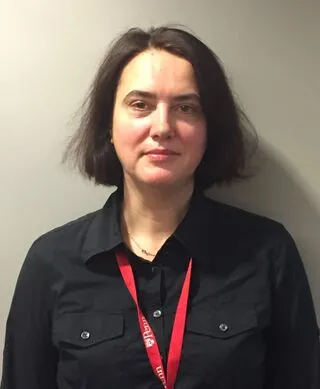
Research Specialist
Viktoriya.Ekshyyan@pennmedicine.upenn.edu
My project is to examine the effect of different immunotherapy agents in humanized mice.
Zhangying Cai
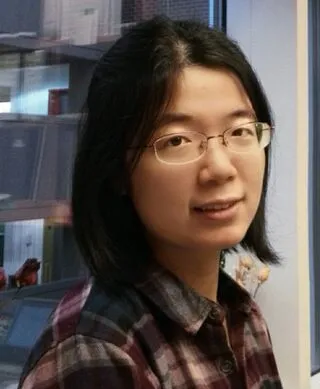
Research Tech
caiz@pennmedicine.upenn.edu
My research mainly focus on the regulatory function of microRNAs in CD8 T cell exhaustion. I’m also involved in the project about identifying key transcription regulators in CD8 T cell anti-viral response by in vivo CRISPR screening.
Lakshmi Chilukuri
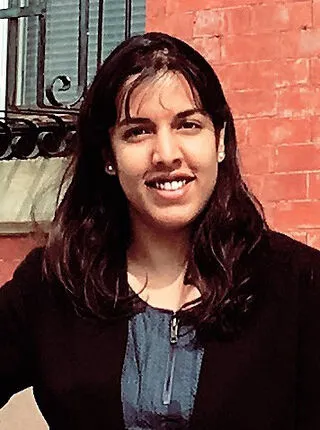
Research Specialist
lpchil@pennmedicine.upenn.edu
Assisting in Clinical trials and sample management.
Peyton Conrey
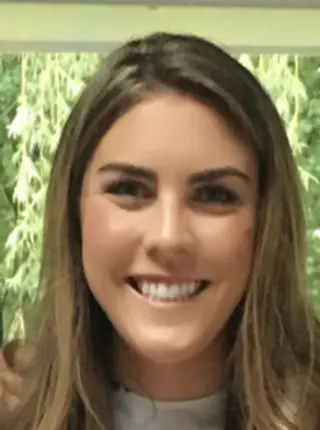
Research Technicial
pec56@scarletmail.rutgers.edu
I am working with Sarah Henrickson to investigate the role of T-cell dysfunction, inflammation and immunometabolism in pediatric inflammatory diseases.
Ramin Herati
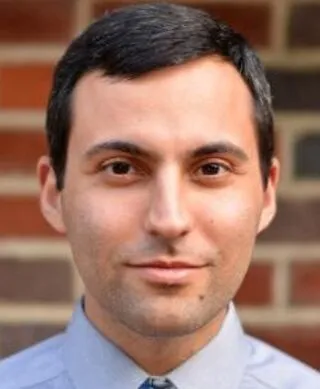
Instructor
Ramin.Herati@uphs.upenn.edu
Follicular helper CD4 T cells provide vital help for antibody responses. We have been studying repertoire dynamics of circulating T follicular helper CD4 cells following influenza vaccination in adults to understand the specific effects of aging and inflammation on this critical player in vaccine-mediated responses.
Alexander Huang
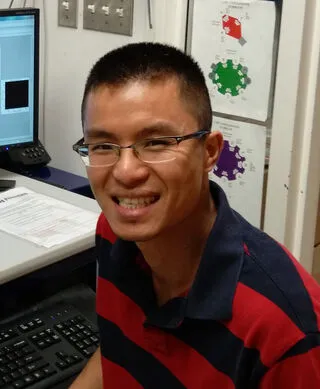
Instructor
Alexander.Huang@uphs.upenn.edu
We study the mechanism of immunotherapies such as anti-PD1 and its effect on CD8 T cell exhaustion and re-invigoration in cancer patients. We then correlate the immune changes with clinical outcomes of patients to understand the determinants of response and non-response to immunotherapy. We have recently identified that the balance between re-invigoration of CD8 T cells and overall tumor burden may dictate clinical response to anti-PD1 therapy in melanoma patients using deep immune profiling of peripheral blood T cells (Nature 2017).
John Johnson
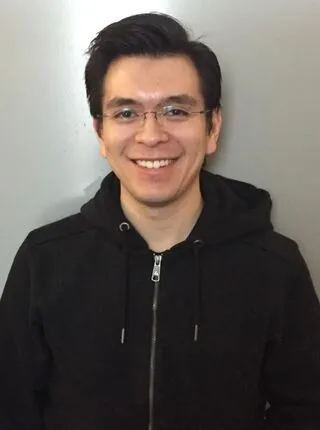
Graduate Student
Mechanisms that grant cell-type-specific regulation of gene transcription allow for heterogenous function of cells due to differential expression of genes. These gene regulatory programs are established through cell-type-specific binding of transcription factors. However, while the architecture of the chromatin environment in the cell typically dictates the binding of transcription factors and impacts gene expression, we have identified transcription factors that instead govern the architecture of the chromatin environment in the development and differentiation of T cells. I am interested in determining the mechanisms that allow these transcription factors to modify the existing chromatin to establish cell-type-specific regulation of genes. We use genome-wide, next-generation sequencing methods such as ATAC-seq, single cell ATAC-seq, ChIP-seq, HiChIP, and RNA-seq to uncover these principles. In the future, we hope to use these mechanisms to reverse terminal cell programs and revitalize antigen-specific T cell responses.
Jonathan Johnnidis
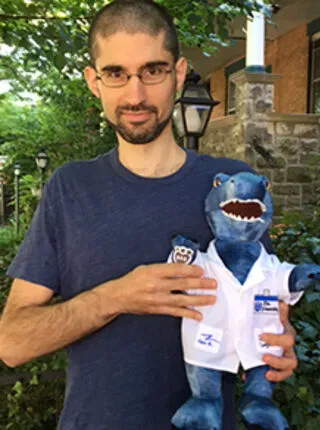
Graduate Student
johnnid@sas.upenn.edu
Stress and the passage of time age the immune system like any other organ, and consequent immunosenescence impairs a panoply of functions that are critical for survival, including microbial defense and tumor immunosurveillance. Given their requirements for extensive and extremely rapid replication, T cells are particularly sensitive to immunosenescence. How pathogen-specific T cells manage genome integrity to forestall immunosenescence is the subject of my research.
Makoto Kurachi

Post-doc
kurachi@mail.med.upenn.edu
Since I joined to the Wherry lab in 2011, I have been studying transcriptional control of CD8 T cell differentiation. Particularly, I’m interested in role of BATF and IRF4 as cardinal transcription factors in various phases of CD8 T cell response. We have already revealed that BATF serves as an essential differentiation checkpoint in transition from naïve to effector CD8 T cells, and BATF and IRF4 co-bind to genome of activated CD8 T cells [link]. Based on these findings, we are currently testing the hypothesis that BATF and IRF4 work as pioneering transcription factors in CD8 T cell differentiation. Role of these transcription factors in T cell exhaustion is also being studied.
Key words: CD8 T cell, BATF, IRF4, pioneer transcription factor, exhaustion
Laura McLane
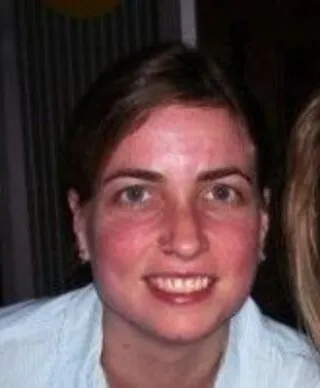
Research Associate
lmclane@mail.med.upenn.edu
My research focuses on the regulation of the t-box transcription factors, T-bet and Eomesodermin, during CD8 T-cell exhaustion. Specifically, I am interested in understanding how these factors play different roles in memory cells compared to exhausted cells both through their own regulation by other cellular factors as well as through the downstream genes that they target.
Alex Muselman
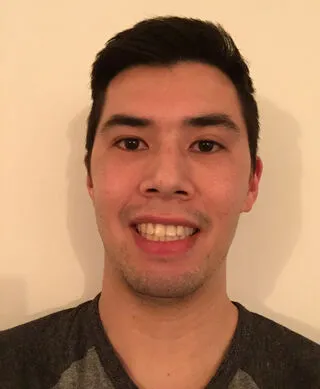
Research Tech
muselma@mail.med.upenn.edu
We are studying the human CD4 T cell response after influenza vaccination, specifically in the T follicular helper (Tfh) cells. A subset of Tfh, circulating Tfh, can be found in the peripheral blood and may give us a way to get a glimpse of what is happening in the lymphoid tissue. I am also interested in studying the expression of activation induced markers for identifying antigen-specific cells.
Christina Niavi
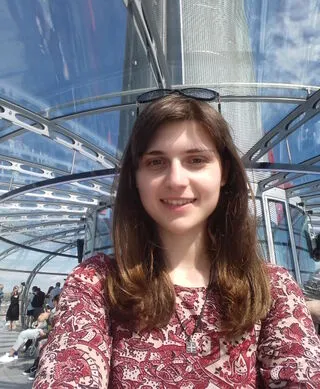
Student Intern
Christina.Niavi@pennmedicine.upenn.edu
The first question that I engage myself with is investigating the role of microRNAs in regulating CD8+ T cell function during acute and chronic viral infections. In addition, Ι am interested in the effect of ion flow upon T cell function.
Kito Nzingha

Research Specialist
knzingha@mail.med.upenn.edu
I will be exploring how miR-29a regulates antiviral CD8+ T-cell responses in chronic infection.
Junko Kurachi

Tech
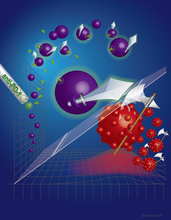
I studied Architecture and had been working as a house designer in Daiwa House Co., one of the largest homebuilder company in Japan. Since joined the lab in 2011, I’ve been working as a research technician. Taking advantage of designer knowledge, I’ve also made several scientific concept figures for the lab. Representative works can be seen at here or here.
Kaitlin O'Boyle

Research Tech
koboyle@mail.med.upenn.edu
I am working with Laura Vella and Sarah Henrickson on a variety of topics ranging from HIV to pediatric inflammatory diseases with a particular focus on T cell immunology.
Kunal Patel
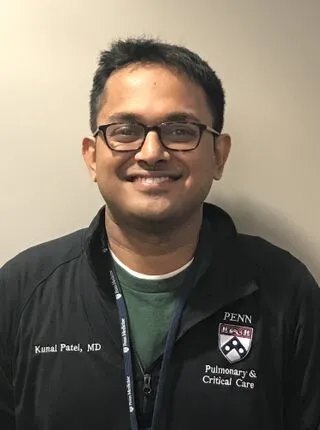
Fellow
Kunal.Patel2@uphs.upenn.edu
I am interested in the role of PD-1 and other inhibitor pathways in the regulation of primary and memory CD8 response to acute infections, specifically influenza. I am also interested in translational studies about the effect of PD-1 blockade on both acute and chronic pulmonary infections in patients in the ICU and those with underlying pulmonary disease.
Luisa Silva
Research Specialist
lsilva@sas.upenn.edu
Ryan Staupe
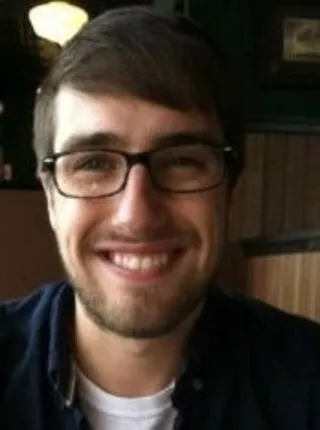
Graduate Student
rstaupe@mail.med.upenn.edu
I am a fourth year graduate student in the Immunology Graduate Group (IGG). My research focuses on immune dysfunction during chronic infection with a particular focus on B cell and CD4 T cell responses. I use the LCMV mouse model of chronic infection to look at cellular and molecular differences within LCMV-specific B cell response and how those differences can be exploited in a therapeutic setting such as immunotherapy or vaccination.
Laura Vella
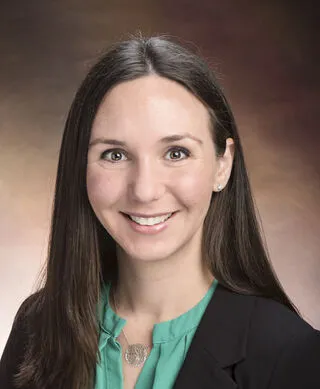
Instructor
vellal@email.chop.edu
Works on human immunology and chronic infection, with a focus on T follicular helper cells and HIV.
Patrick Yan
Research Specialist
pat.k.yan@gmail.com
Erietta Stelekati
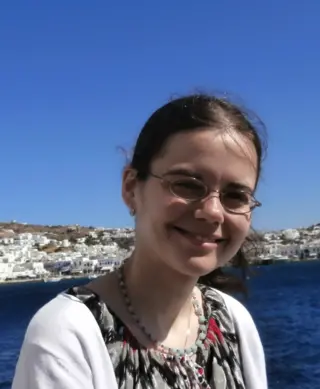
Post-doc
erietta@mail.med.upenn.edu
"The role of microRNAs in regulating CD8 T cell differentiation during acute and chronic viral infections."
Sarah Henrickson, MD, PhD
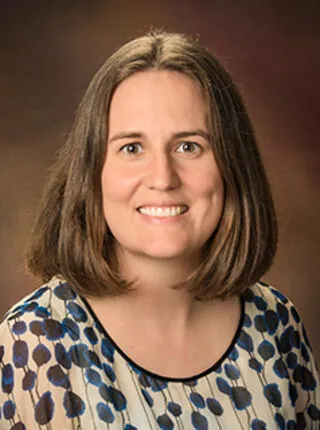
Attending Physician with the Division of Allergy at Children's Hospital of Philadelphia
henricksons@email.chop.edu
Sarah works on T cell dysfunction in pediatric disease. She has two main projects, one investigating the immunometabolic alterations when asthmatic patients are also obese. The second focuses on novel immunodeficiency discovery in severe cutaneous viral infections.


